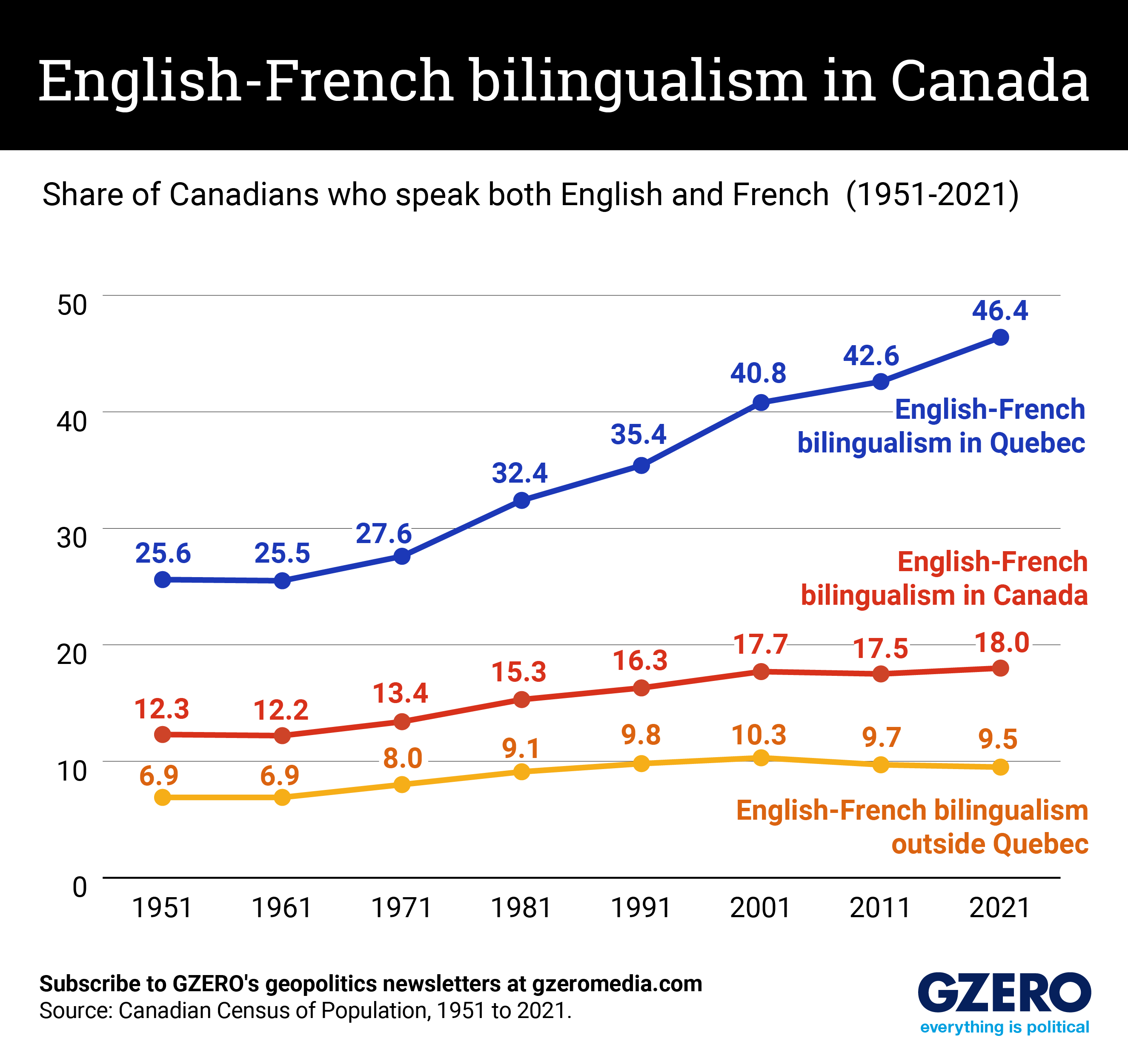The Graphic Truth: English-French bilingualism in Canada
Parlez-vous le français? Probably pas très bien if you live outside Quebec, according to census data from Statistics Canada.
The share of Canadians who can hold a conversation in both English and French has plateaued around 18% for two decades, despite strong legal protections for the French language and official encouragement of bilingualism.
The background: Political rivalries between English and French-speaking Canadians dominated the early history of the country, and fuel some radical independence movements in Quebec even today. Official adoption of bilingualism at a federal level in 1969 was meant to help heal the rift.
And in the first three decades, it met with considerable success. The share of bilingual Canadians rose from 12.2% in 1961 to 17.7% in 2001.
However, most of the growth came in Quebec, which continues to push up the national rate of bilingualism. Nearly half of Quebeckers are bilingual, compared to less than 1 in 10 Canadians from other provinces.
Statistics Canada explains that English-speaking Canada has simply outgrown the share of the country with French as their mother tongue, but also pointed out that Canadians whose mother tongue is neither French nor English —- mostly immigrants — are less likely to learn both of Canada’s official languages.
But there’s one more wrinkle: Quebeckers whose mother tongue is neither English nor French are actually more likely than the general population to speak both languages, with 50.8% able to hold a conversation in French, English and their mother tongue. Incroyable!
